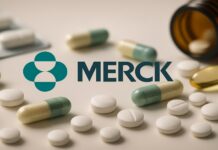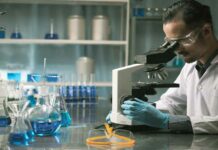The Pistoia Alliance, a global, not-for-profit alliance that advocates for greater collaboration in life sciences R&D, is announcing the launch of a new project on the microbiome, which could help speed up the advancement of new, precision medicines and treatments. The project – funded by Bayer, BMS, Eagle Genomics, Pfizer, Roche and Takeda – aims to incorporate microbiome data into the drug development pipeline by gathering all existing microbiome data to create a global standardized ‘atlas’ that scientists can refer to when choosing new drug candidates.
The microbiome has a profound impact on drug behavior in an individual, and if the industry is going to improve the efficacy of drugs and develop the field of precision medicine, then a greater understanding is needed of an individual’s microbiome and how it interacts with medicines. However, the information on the microbiome is vast and hard to make sense of – there are currently 5,000 different known species of microbes in the body. The database developed by the cross-industry collaboration in this project will collate and develop scientific understanding, by mapping the bi-directional relationship between the metabolic effect of drugs and dietary supplements on the microbiome, as well as the microbiome’s influence on the efficacy of these drugs and dietary supplements.
“The microbiome is now a widely accepted modulator of health, disease and therapeutic response, but it is not currently being utilized to its full potential. Gathering and standardizing the vast amounts of data on the microbiome-derived metabolism is the first step towards being able to predict the relationship between the body’s metabolism and new drug candidates,” comments Dr Manuela Pausan, Microbiota researcher at Bayer. “It is vital that organizations come together at this early stage so that we embed good practices and universal standards that will benefit all future research topics in the field. Collaborating on data in this way will allow new trends to be uncovered, and potentially revolutionize how the industry approaches creating new treatments.”
The project will be conducted in three stages:
- Stage One: Curate existing data on the microbiome-derived metabolism of pharmaceutical drugs and other chemical compounds (such as polyphenols, flavonoids, alkaloids) from existing publications, public data repositories and internal pharma company data. Then, standardize this data to build a machine readable ‘atlas’, that will allow researchers to quickly search and discover the links between the microbiome, the body and other chemicals.
- Stage Two: Determine any specific chemical groups of interest, which will be decided together with the companies that are financially supporting the project, and start building a prediction tool that can be incorporated into future therapeutic development.
- Stage Three: Scale the predictive algorithm and aim to make this database the standard one for determining the effect of drugs and dietary supplements on the microbiome.
“The Eagle Genomics team is delighted to participate in this pre-competitive microbiome and drug metabolism project as members of the Pistoia Alliance,” commented Dr Sven Sewitz, Director of Biodata Innovation, Eagle Genomics. “Scientists are beginning to understand the complex interactions between gut microbes, their metabolism, and their effect on drug efficacy. We are keen to work alongside other members of the project team to develop the computational tools and data infrastructure that will enable and accelerate this exciting work. Science and innovation in this field are moving at an incredible pace, and the outcomes of this project will be shared with a wide group so advances can be applied in many contexts. We are at the beginning of a new phase in drug development, which will be of great benefit to patients all over the globe.”
“This project will truly enable companies to take microbiome data from being an area of academic research to actually being applicable to the drug discovery process, with demonstratable outcomes. We recognize that the microbiome is an important area to our members, and we need to enable them to explore it further. This project will help members bring the next frontier of R&D into the real world,” comments Dr Imran Haq, Emerging Science and Technology Strategic Lead at the Pistoia Alliance. “This is what the Pistoia Alliance is all about – providing a powerful forum for organizations to collaborate on ideas and deliver tangible results that will drive the future of healthcare.”
About The Pistoia Alliance:
The Pistoia Alliance is a global, not-for-profit members’ organization made up of life science companies, technology and service providers, publishers, and academic groups working to lower barriers to innovation in life science and healthcare R&D. It was conceived in 2007 and incorporated in 2009 by representatives of AstraZeneca, GSK, Novartis, and Pfizer who met at a conference in Pistoia, Italy. Its projects transform R&D through pre-competitive collaboration. It overcomes common R&D obstacles by identifying the root causes, developing standards and best practices, sharing pre-competitive data and knowledge, and implementing technology pilots. There are currently over 150 member companies; members collaborate on projects that generate significant value for the worldwide life sciences R&D community, using The Pistoia Alliance’s proven framework for open innovation.




















